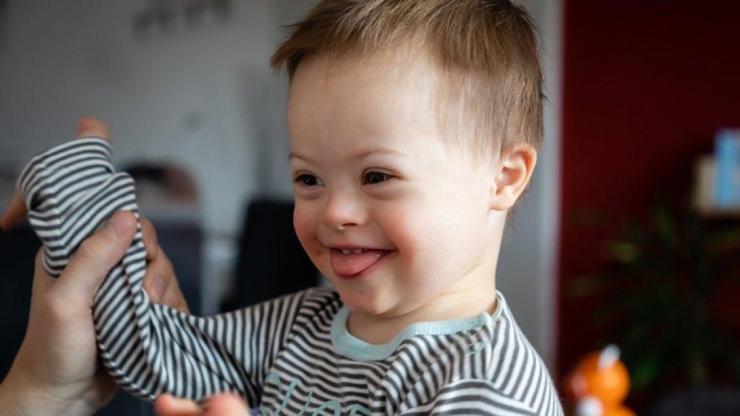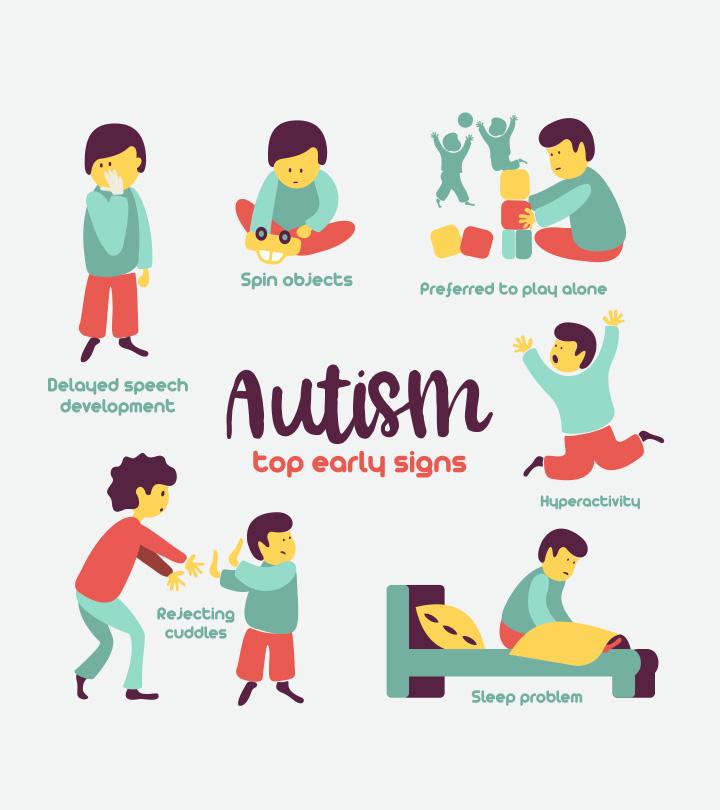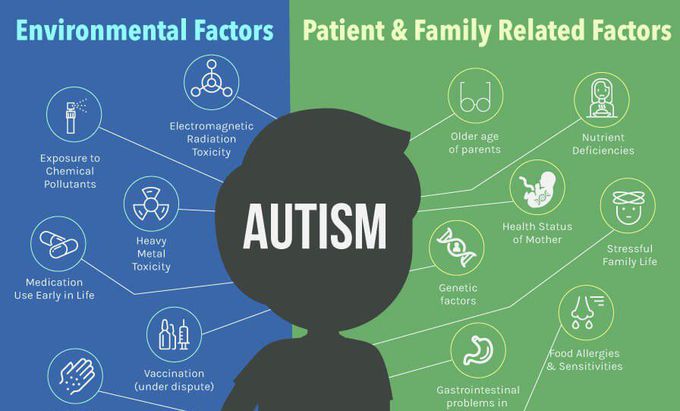AUTISM IS NOT A LACK.IT IS AWARENESS

Autism spectrum disorder (ASD) is a neurodevelopmental disorder and condition. For many individuals, it causes significant difficulties in social interaction, communication skills, and limited interests. Autism causes individuals to have difficulty in social interaction, deficits in communication skills, and repetitive behaviors. Autism may occur as a result of a complex interaction of genetic and environmental factors. From this article, you can learn in detail what autism spectrum disorder is, its symptoms and available treatment options.
Autism is a developmental disorder that usually begins at the age of 3 and continues throughout life, which can be defined as the individual's inability to establish appropriate verbal and non-verbal relationships with his/her environment. Nowadays, it can be diagnosed early with simple tests. Early diagnosis and appropriate rehabilitation program play a major role in bringing these cases back to life.
The cause of autism is not fully known. It is thought to be genetic. It is more common in boys than in girls. 70% of people with autism have mental retardation. Superior intelligence can be seen in 10%. Attention deficit and hyperactivity disorder, mood disorders and epilepsy may occur with autism. 
What are the causes of Autism Spectrum Disorder?
The exact cause of autism spectrum disorder is not yet fully understood. However, autism spectrum disorder is thought to occur as a result of the combination of multiple influencing factors. Here are some factors into potential causes of autism spectrum disorder:
Genetic Factors: Genetic predisposition is the strongest factor thought to be associated with the development of autism spectrum disorder. It is thought that certain genes may increase susceptibility to autism spectrum disorder and play a role in the development of the disorder. Individuals with a family history of autism spectrum disorders are more likely to be at risk for autism.
Environmental Factors: It is suggested that some environmental factors may be effective in the development of autism spectrum disorder. For example, some infections, toxic substances or prenatal risk factors exposed during pregnancy may increase the risk of autism. However, it is not fully established which environmental factors increase the risk of autism spectrum disorder.
Brain Development: It is thought that there are differences in the brain development of individuals with autism spectrum disorder. Differences in brain structures and connections can have an impact on social interaction, language and communication skills.
Immunological Factors: It is suggested that some conditions related to the immune system or autoimmune diseases may play a role in the development of autism spectrum disorder. However, this relationship is not fully understood and more research is needed.
Other Factors: It is thought that factors such as advanced age of parents, complications during pregnancy, and premature birth may increase the risk of autism spectrum disorder. However, the role of these factors in the development of autism spectrum disorder is not fully understood.
What are the symptoms of autism in babies?

0-1 Years Old Autism Symptoms:
• Eye contact is either absent or limited.
• Joyful expressions such as smiling or laughing are either absent or limited.
• Reaction to facial expressions is either absent or limited.
• They are very interested in unexpected objects.
1-2 Years Old Autism Symptoms:
• Simple hand movements such as pointing and trying to reach are either absent or limited compared to their peers.
• Word use is limited.
• Reaction to his name is either absent or limited.
• They shout loudly for no reason.
• They exhibit repetitive movements.
2-3 Years Old Autism Symptoms:
• They do not like contact.
• They may have difficulty speaking.
• The frequency of exhibiting aggressive attitudes increases.
• They begin to repeat what they hear from others..jpg)
What are the symptoms of autism in children?

Symptoms of Autism for 4-5 Year Olds:
• Voice intonations appear in a single dimension.
• Words and sentences may not be clear.
• They may start to have difficulties in social life.
Symptoms of Autism for 5-6 Year Olds:
• They may not be able to perceive simple jokes and may exhibit negative reactions.
• They may have difficulty concentrating.
• Eating disorders may occur.
6-7 Years Old Autism Symptoms:
• They reject positive sentences and displays of affection directed at them.
• They may exhibit positive reactions such as laughter and negative reactions such as crying at unexpected moments for a long time.
• They may give answers to questions that are irrelevant to the topic.:max_bytes(150000):strip_icc()/what-is-severe-autism-260044-Final-1624a05bc38f43faa1b2d3e0e42f8d3d.png)
What are the symptoms of autism?

In order for a child to be diagnosed with autism , he or she must have at least 6 of the symptoms listed below.
Insufficiency in social interaction (inability to make eye contact, not paying attention to peers or playing games, not showing normal facial expressions and emotional expressions, difficulty initiating and maintaining interaction)
Communication disorder (inability to speak, constant repetition of the same word (echolalia), not trying to communicate with talking children)
Lack of imaginary or symbolic play (failure to engage in imaginary games, repetitive simple activities, constantly repeating the same routine movements, excessive obsession with a part of an object, lack of emotional arousal or overreaction)
Additionally, children with autism show many of the symptoms listed below:
- They may be hyperactive or sedentary.
- They do not care about their environment
- There is a delay in speech.
- They deal with inanimate objects instead of communicating with people.
- They do not communicate with their peers in the community, do not participate in games, and isolate themselves.
- They do not use speech as a means of communication
- They make inappropriate sentences and talk like stereotypes.
- They can laugh and giggle nonchalantly at anything.
- They may obsess over a part of an object. (e.g. constantly playing with the wheels of the car)
- They may become excessively attached to some objects.
- They are obsessed with order. They can become irritable when their routine is disrupted.
- They perform repetitive movements such as clapping their hands, jumping, turning around, rocking back and forth, and flapping their wings.
- They don't dream and play like normal children, they line up the cars and constantly turn the wheels.
- They always play the same games.
- Some can be very stubborn and combative.
- They may become extremely afraid and react when they enter a social environment.
- They can harm themselves and the objects around them.
- They are insensitive to danger.
- They are insensitive to pain.
- They are insensitive to normal learning methods.
.jpg)











































































